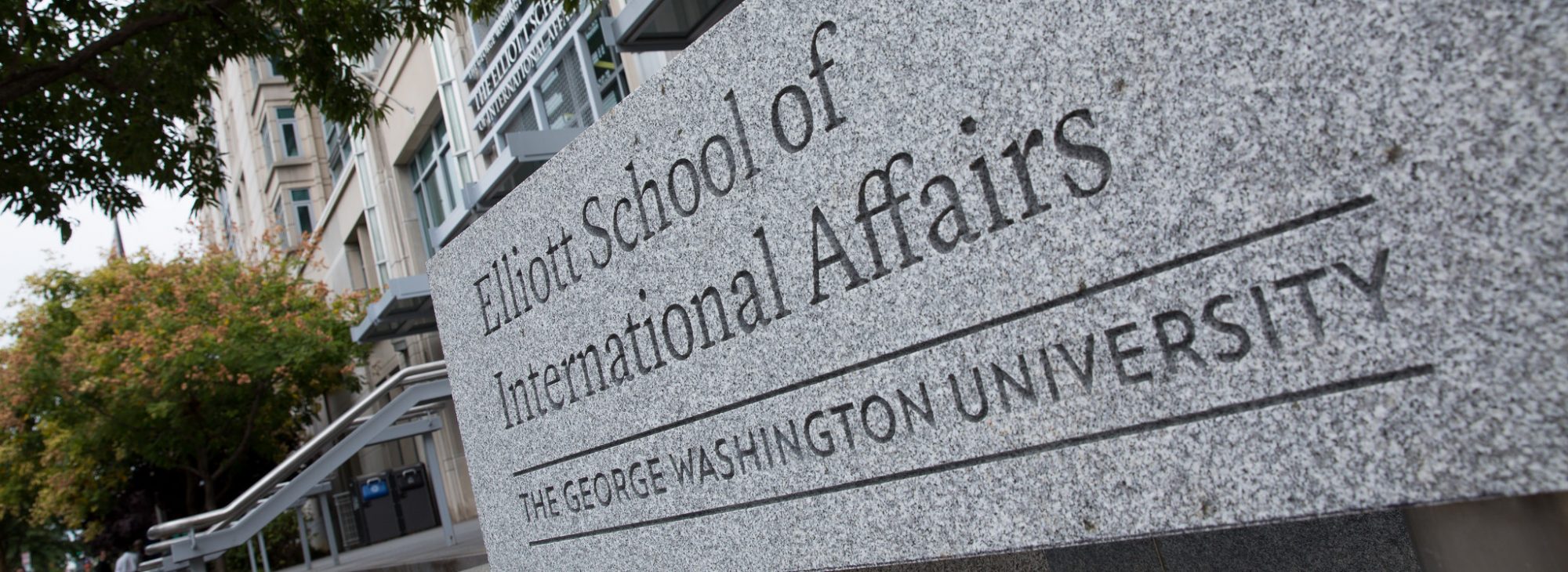There are 5 online courses under the Topics in International Policy and Practice that are open to non-MIPP students!
IAFF 6222.DE1 (CRN 47417): International Security Politics - This course is an introduction to the dynamic and deeply important field of international security. The purpose is to provide students with an overview of the theoretical and policy debates in the field of international security. During the course we will examine a variety of contemporary security issues to gain an understanding of these threats and their impact on international security in the 21st century. This course begins with an overview of key concepts, theories, and approaches in the field of international security. It then examines inter-state, intra-state, and transnational security problems, with the understanding that many security problems cut across these categories. Analysis of important security topics (causes of war, great-power relations, weapons of mass destruction, arms racing and arms control, crisis management, civil wars, insurgency, terrorism, and cyber security, among others) is combined with a review of regional developments. The final section of the course examines non-military issues (poverty, health, population movements, organized crime, and globalization for example) that have major security implications, as well as the role of international organizations in international security. The course concludes with a look to the future.
IAFF 6222.DE2 (CRN 47424) Ethics in Security Policy - This course will introduce students to the common ethical dilemmas associated with national and international security policy. To contribute to the decision-making of how the US Government should respond, or not, to challenges to its security and foreign policy interests, those involved must understand the context for the ethical challenges they face and be confident in their ability to navigate them. Students will be exposed to four common frameworks for evaluating ethical dilemmas, and over a dozen additional variations, and review the ethical guidelines enshrined in the US Constitution that ground the US Government approach to security policies. They will evaluate, individually and collectively, dozens of real-life scenarios that required them to make hard choices in ambiguous situations. Finally, students will create fictional scenarios in teams and present their final decision-making. The course seeks to enhance students' confidence and competence in contributing to ethically challenging decisions on a range of national and international security issues.
IAFF 6222.DE3 (CRN 47426) Civil Military Relations - The study of civil-military relations examines the relationship and interaction of the government, military and the citizenry – all of whom are crucial players in the shaping of national security policy. However, each of these institutions has its own priorities, values and purposes, yet they all must find ways to cooperate in order to protect the country’s interests, both domestically and abroad. Moreover, each carries its own unique source of power which demands a careful balancing at the risk of subverting one of the others. This course will examine a broad range of topics regarding civil military relations to include civil-military theory, practice (both in western and non-western societies) and various socio-political issues that influence civil-military relations in the 21stcentury (mass media, contractors and the “civ-mil gap”). The course will also explore recent case studies (Iraq and Afghanistan) to analyze how all the major players in the civil-military relations dynamic have functioned in two major applications of military force. Overall, this course will help inform the statesman, professional military officer and citizen in creating a better understanding of his/her role in relation to their government and society in the policy making process.
IAFF 6222.DE5 (CRN 47431) Cyber Threats, Policy and Strategy - This course examines current issues in the realm of cybersecurity, focusing on cybersecurity strategy, threats, conflict, and policy. It begins with an understanding of the power inherent in cyberspace and considers the policy issues facing the civilian, military, intelligence and private business sectors in dealing with offensive and defensive cyber activity. Through case studies, it examines previous and ongoing cyber conflicts to understand their impacts on international relations. Students will analyze the roles of several different types of actors in cyber security including states, non-state actors such as criminal and terror groups, and private sector responses. This course will also analyze cyber deterrence and the unique aspects of offensive and defensive cyber activities by all cyber actors. Technical background is not required and basic aspects of cyber operations will be discussed and demonstrated as part of the introductory class sessions.
IAFF 6222.DE6 (CRN 47433) Security and Development - This course aims to consider the relationship between security and development across a number of issue areas. Its objective is to enable you to create your own ‘map’ of the relationship and help you to understand some of the connections and disconnections between the two fields. The course will also allow you to deepen your understanding of one developing country and to demonstrate that knowledge through a range of products. The existence of this course reflects the fact that there is growing interest from the security field in issues that have traditionally been the purview of development. This seminar course looks at armed conflict and failed states, but it seeks to look beyond these issues as well to areas such as demography, the environment, urbanization, and trade, to see how the development-security relationship looks in these issue areas.

